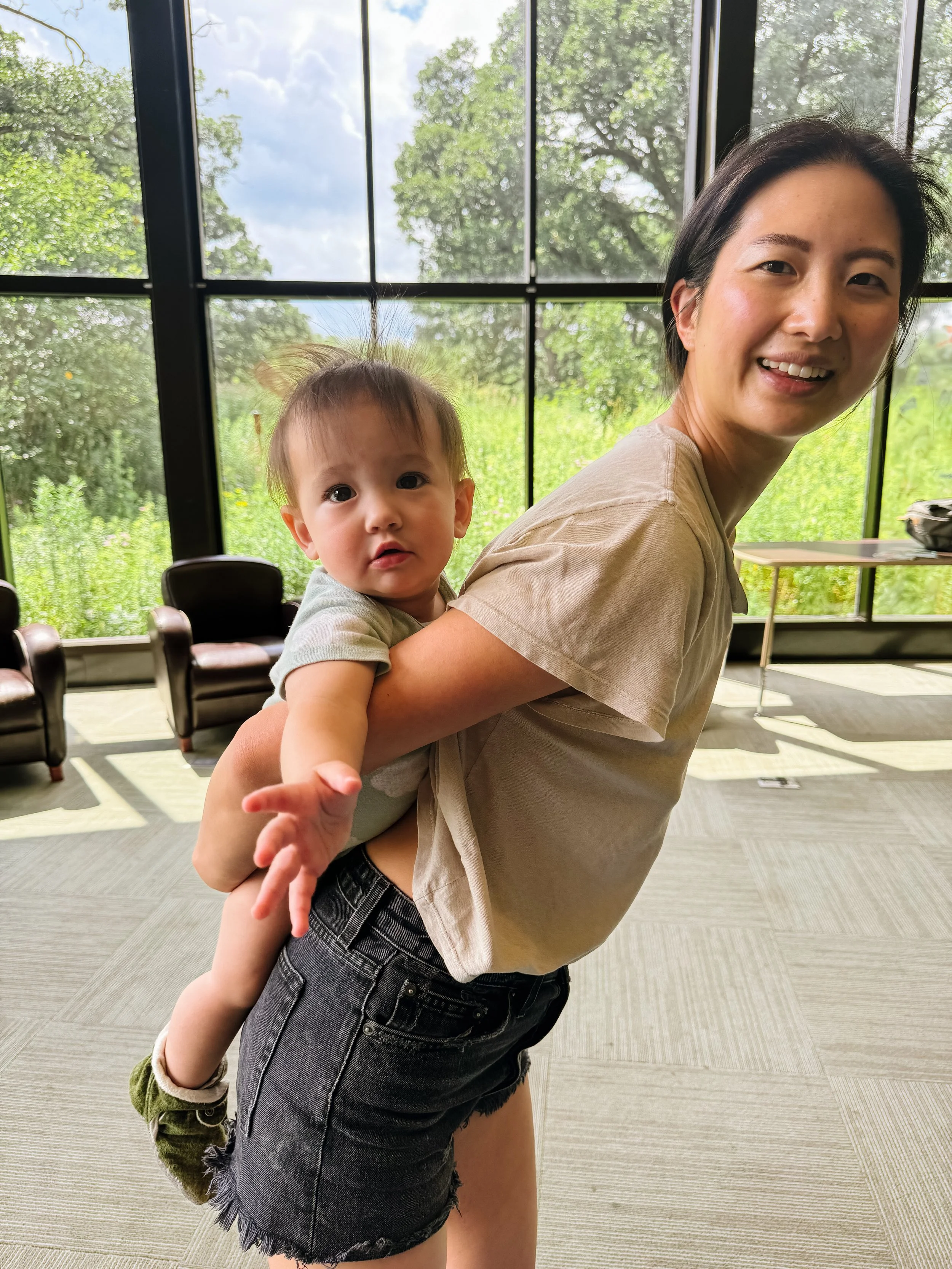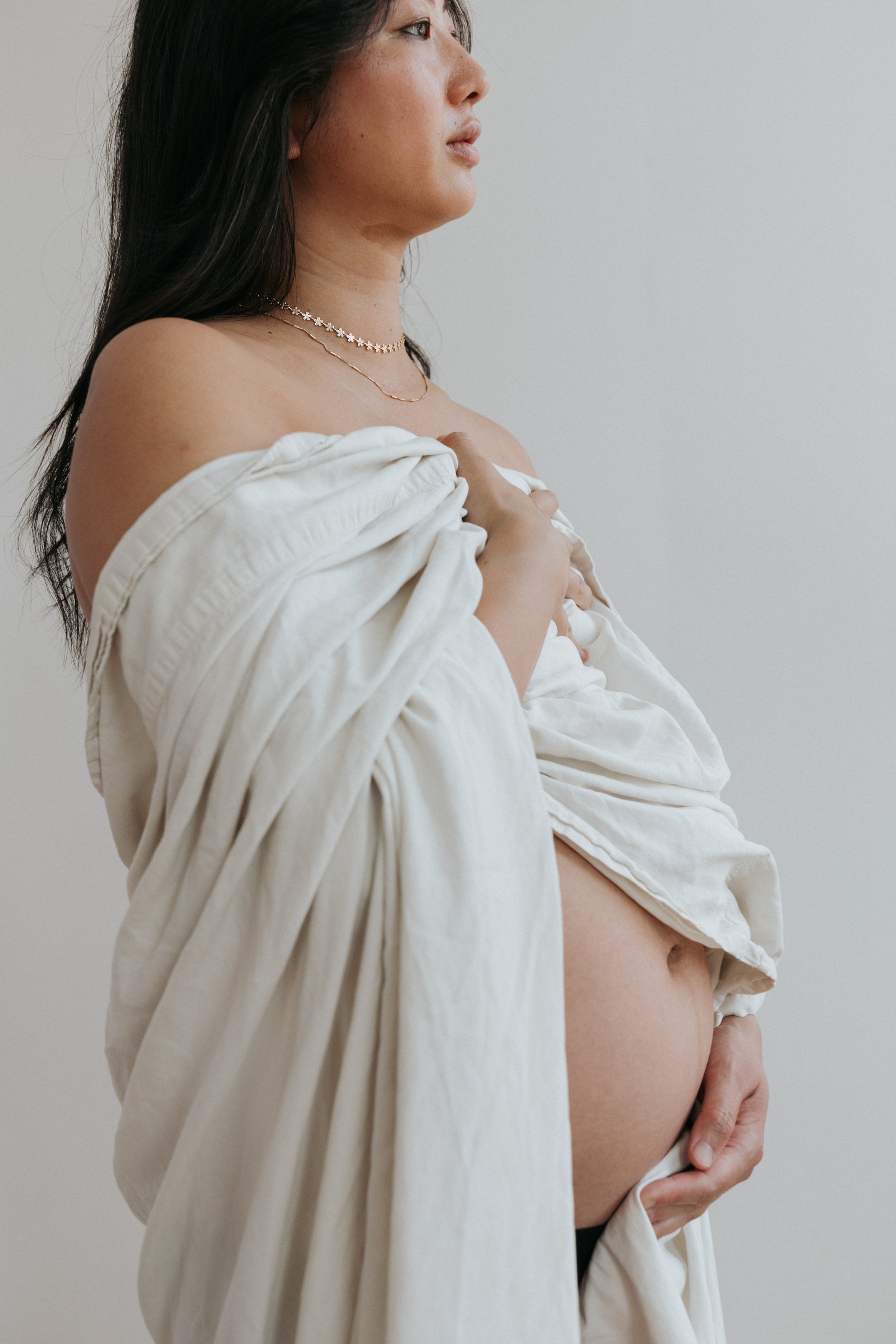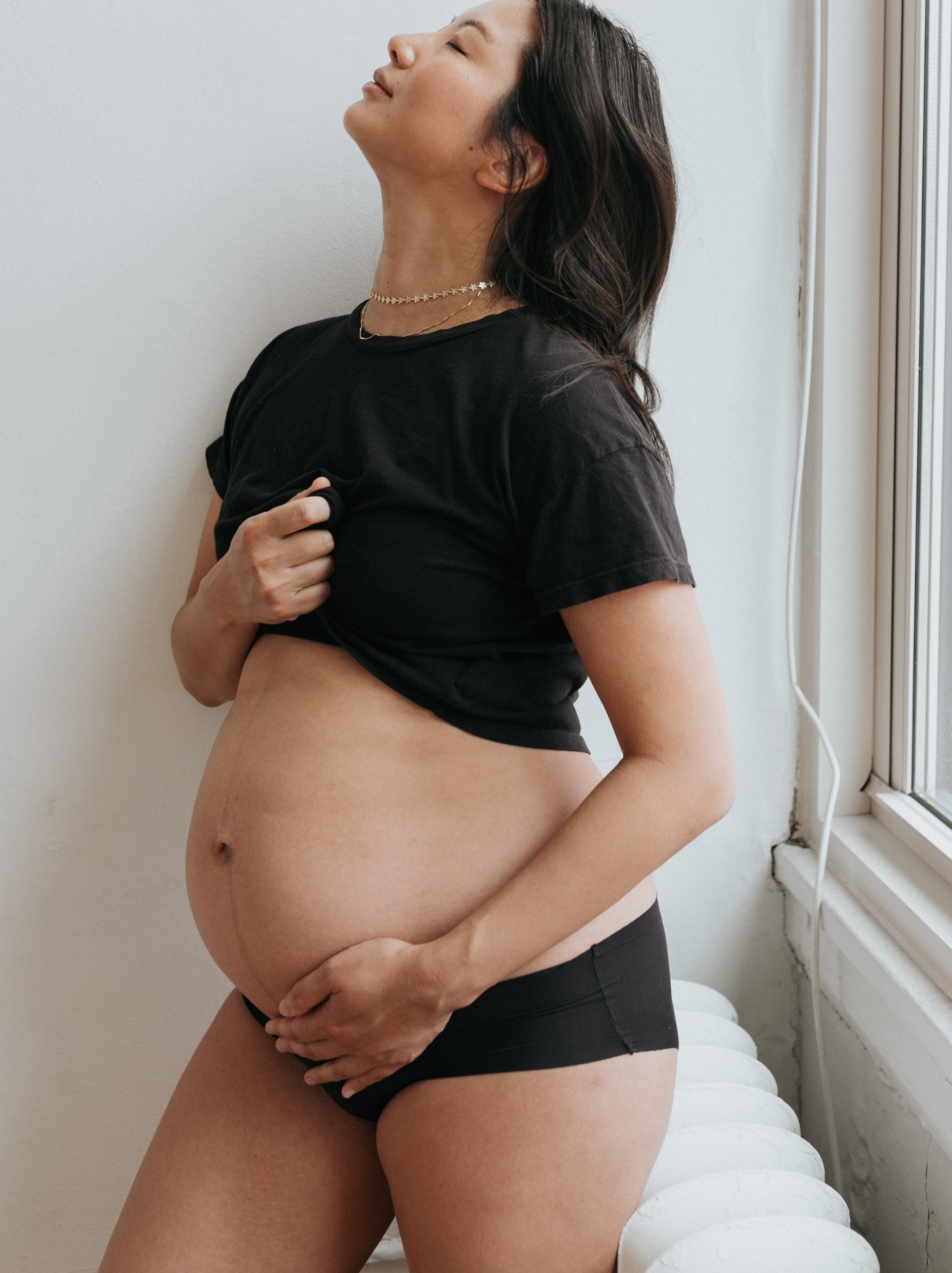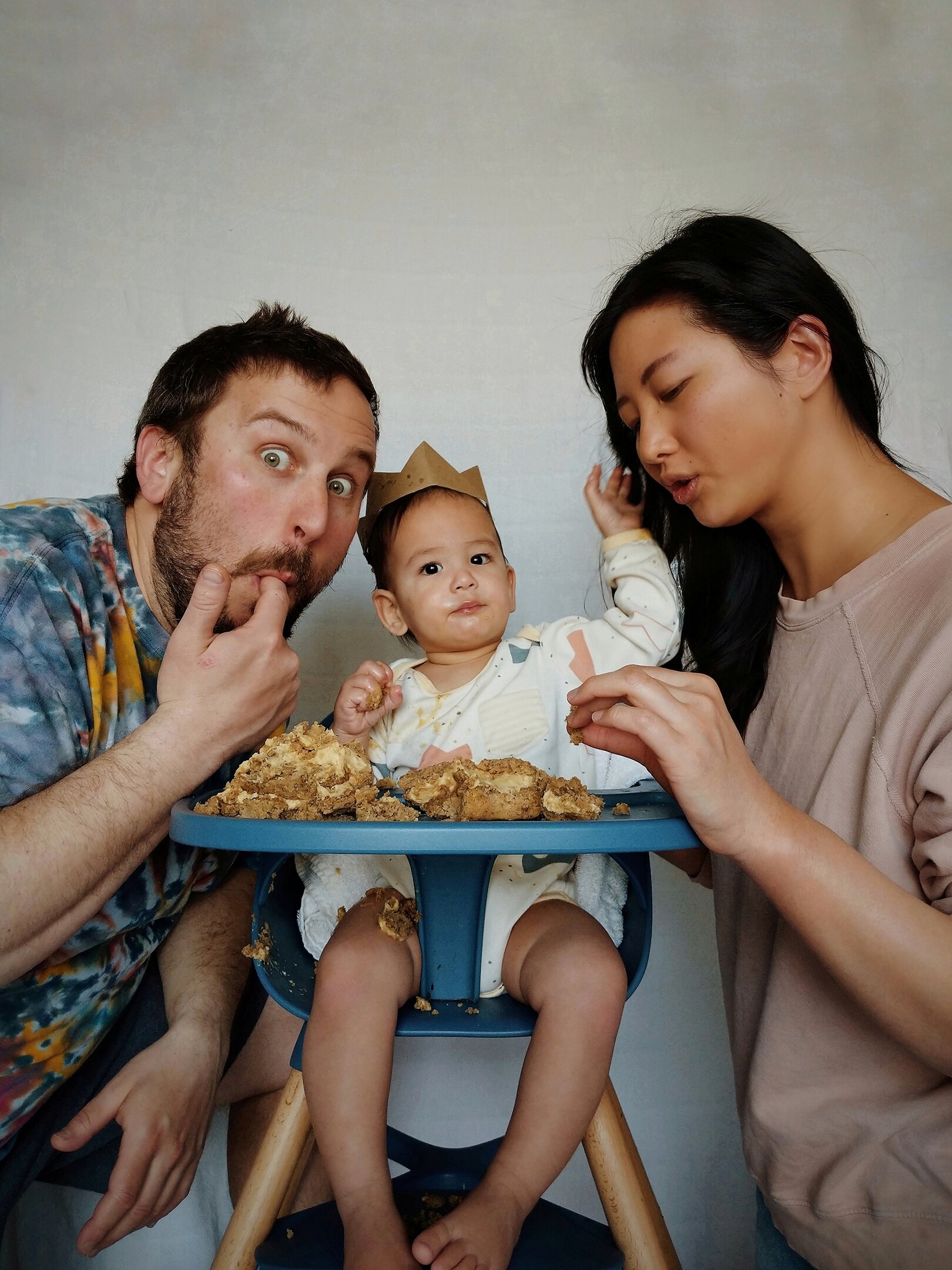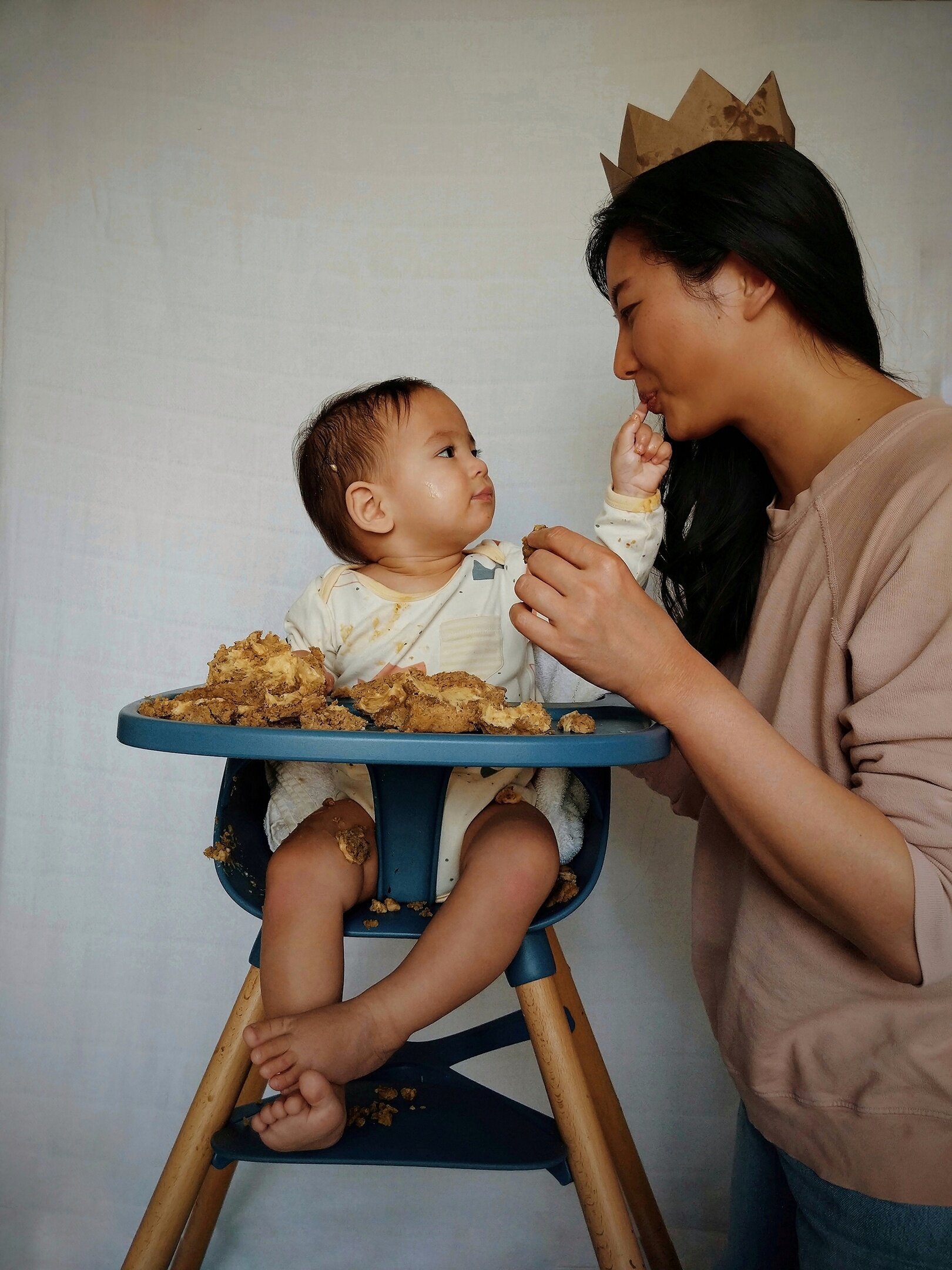As my baby reaches a year old, I'm reflecting on the things I've learned over the past 365 days. Motherhood has brought me depths of joy I didn’t know were possible. It’s also repeatedly pushed me over the edge, testing my patience and sanity. Motherhood is relentless and often feels heavy. Physically, it has changed me. My hips wider from birthing him. My shoulders broader from holding him. My hair thinner from nursing him.
I wish someone had told me that taking care of a baby is really really hard, that I won’t enjoy every single moment, that it’s a huge learning curve and no one gets it right the first time. I wish someone had told me that it’s okay to long for the life I had pre-baby.
I think back to a year ago and I can’t believe some of the things I did or didn’t do. I’ve experienced too many lessons to count, but these three themes continued to pop up for me over the year:
Everyone has an opinion but focus on my own.
When Bub was born, my peanut gallery got louder and bigger. Family, friends, media outlets, hospitals, consultants, parenting books. Everyone had an opinion about everything, and it was difficult for me to sift through the information I actually wanted to heed.
Here’s an example of me wishing I had listened to my gut right away rather than what experts were recommending at the time. When Bub was starting to eat solids, family and institutions recommended rice cereal and jarred purees. I was uncomfortable with the idea, wondering why I couldn't offer purees I made myself. Convenience, time-savings, fortified foods, they said. I begrudgingly fed Bub rice cereal for a few meals before putting my foot down. Rice cereal didn’t seem very nutritious to me, and making his food was something I wanted to do and that I enjoyed doing. That’s it, no more rice cereal. I don’t care what anyone else thinks. I’m glad I eventually listened to my intuition. A few months later, the FDA reported high levels of arsenic in rice cereal.
My point in sharing this isn’t to shame parents who feed their babies rice cereal or jarred purees. It’s to encourage myself and others to listen to our gut and stick to it, no matter what we’re hearing from family, friends, or “experts”. I shouldn’t have to justify my parenting decisions. Everyone’s parenting journey is unique and their own to figure out.
The older I get, the more I realize that “adults” have no idea what they are doing. It’s a scary thought, but the rose-colored glasses are off. I cringe when I hear people say “this worked for me and my kids turned out fine”. What works for you may not work for me. What works for me may not work for you. And “fine” is subjective.
When I became a parent, I started to notice the toxic traits I grew up with and was worried I would pass them on to my child. I have to work really hard to quiet the inner voice in my head, which is often judgmental and anxious and sounds a lot like my mom.
Everyone has an opinion, even my own inner critic.
depression is not my fault.
During my pregnancy, I anticipated having depression after giving birth. I assumed I would have it. I anticipated it hitting me like a ton of bricks. I pictured myself struggling to get out of bed, sobbing for no reason, feeling complete despair. But what actually happened was something more subtle, something that I didn’t recognize as postpartum depression until I took a closer look.
For me, PPD was triggered by my period while breastfeeding (thank you, fluctuating hormones) and looked like uncontrollable anger. Right before my period hit, I experienced the most intense mood swings and raged over the smallest things. I had zero patience for a crying baby or anything my husband did. At first, my symptoms simmered on the periphery. I felt exhausted and was easily agitated. They quickly bubbled over and before I knew it, I wanted to throw dishes and divorce my husband.
I felt possessed, powerless, alone.
Then, I felt overwhelmingly guilty and heartbroken.
The first few times I experienced these episodes I told myself they were because I was tired and stressed. I told myself I needed to control my emotions better, to manage my anger better, to be a better person. It wasn’t until I realized they were triggered by my period that I understood them as something truly beyond my control and not my fault.
Self-care is easier said than done.
Panic attacks, uncontrollable rage, depression. I worry they’ll appear at any time, catching me off guard and forcing me to ride a wave of emotions. Anxiety and depression often sneak up when I’m feeling the happiest, buzzing in my ear like a mosquito and ruining a joyful moment.
To better prepare myself for these sneak attacks, I’ve had to prioritize self-care, which often looks like an extra hour of sleep, a bath on a Sunday, or a workout sesh in the evening. I used to think self-care had to be a big thing like a weekend getaway to Palm Springs or an afternoon at the spa (both of which sound exhausting to get to right now). I’ve learned that self-care can be as quick as five mindful breaths or a 15 minute break from my desk. It can be speaking to myself with compassion and quieting anxious thoughts in my head with patience. Sometimes it means turning off TV and social media after Bub goes to bed so I can be in bed myself by 10 pm. Other days, it means ignoring my inbox and watching a movie instead. Self-care looks a lot like saying no and being okay with it.
I grew up with self-sacrificing parents. They put providing for their family above all else, working 12 hour days, seven days a week, 363 days a year. As immigrants, they sacrificed their own wellbeing in favor of their children’s. But, I lost out on parents who enjoyed life, who were there for the little things, who lived life with balance. I was taught to revere my parents for their hard work, frugality, and sacrifice. I was taught to embody the same traits. And those feelings of guilt and obligation - they perpetuate and get passed down to the next generation. Self-sacrificing parents often fall into a martyr mentality. A vicious cycle of taking on too much and constantly complaining about it later. It took me a long time to realize that good parents don’t sacrifice themselves for their children. Good parents take care of themselves.





